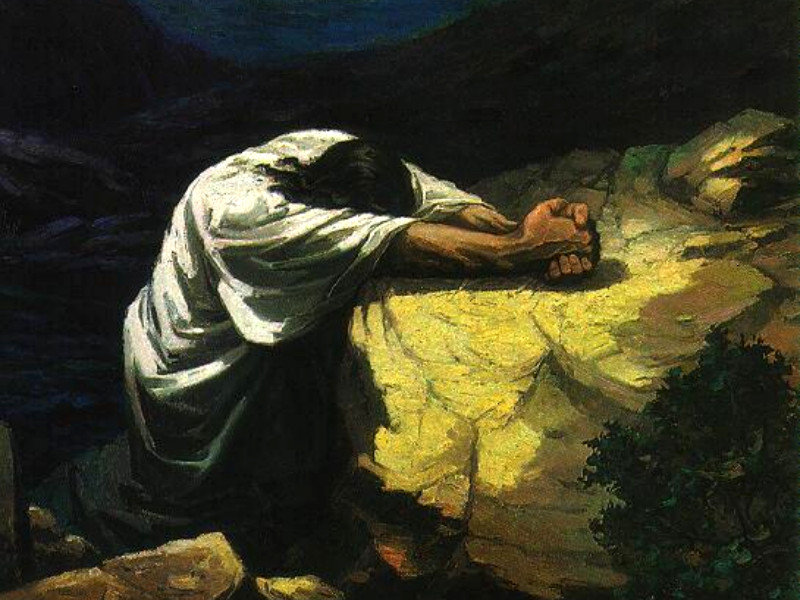I wrote this post nearly a year ago. Very shortly after I wrote it and had not yet published it, a Christian coworker was murdered in the course of his duties. It then seemed strange to publish this post – I wanted time to process my own thoughts on evil and suffering – and God’s redemption of it. I am still not satisfied with the post. But then, much of life is simply not satisfying – that is what Heaven is for. This is not a “feel good” post, but it contains a great deal of truth.
WHAT GIVES OUR LIFE VALUE?
Christianity believes that human life has inherent and eternal value, based on the fact we came from Someone and will return to Him someday, ready or not. Earthly suffering and evil are unpleasant realities we have – as a species – brought upon each other but which He can repurpose to purify us.
So it is no surprise that God-fearing people discover and share with others the most profound meaning of life in the same challenges that cause the godless to consider ending it their lives. Christians do not view life as a hedonistic playground of self-actualization. Life is a gift – an opportunity to move into the purifying and enlivening fire of the love of Christ. It is only in union with Him that our present lives will be eternally meaningful.
In Part One, I looked at the empty values of “choice” and “individuality” that a godless paradigm must embrace as its highest ethic. In such a paradigm one’s worth is invented by the individual, and thus the choice to define oneself in any way whatsoever becomes the highest virtue – the very definition of one’s Self. But a godless paradigm cannot truly claim that anyone’s life has any true or lasting ‘value’ in a real sense – it still means, at bottom, nothing. The invented meaning will ultimately be obliterated in the eternal coldness of a dead universe. In contrast, those who believe God has given human life eternal value must affirm that life has value even in the midst of suffering.
Let’s look at two God-fearing men who found meaning in the midst of suffering.
LIFE’S VALUE IN THE MIDST OF SUFFERING
Viktor Frankl was a psychologist who was imprisoned in a Nazi concentration camp, with all its attendant horrors. After the liberation of the camps, he wrote the book “Man’s Search for Meaning” (read it here for free).
Frankl wrote:
Ultimately, man should not ask what the meaning of his life is, but rather must recognize that it is he who is asked. In a word, each man is questioned by life; and he can only answer to life by answering for his
own life; to life he can only respond by being responsible.
In direct contrast to the emptiness of self-actualization, Frankl urged us to look beyond ourselves:
By declaring that man is responsible and must actualize the potential meaning of his life, I wish to stress that the true meaning of life is to be discovered in the world rather than within man or his own psyche, as though it were a closed system. I have termed this constitutive characteristic “the self-transcendence of human existence.” It denotes the fact that being human always points, and is directed, to something or someone, other than oneself–be it a meaning to fulfill or another human being to encounter. The more one forgets himself–by giving himself to a cause to serve or another person to love–the more human he is and the more he actualizes himself. What is called self-actualization is not an attainable aim at all, for the simple reason that the more one would strive for it, the more he would miss it. In other words, self-actualization is possible only as a side-effect of self-transcendence. (From an Essay – Logotherapy in a Nutshell)
While being victimized by systemic Nazi hate, Frankl discovered what so many others have: there is meaning in life, but not if we look merely within ourselves to find it.
Christians recognize that we cannot – on our own- internally transform our natures and cast out self. Only Jesus can do that in the most thorough way, and not automatically or behind the scenes, as it were, but as we surrender consciously to His presence in our souls.
It is often a crisis within us that makes us realize that we cannot merely seek our own pleasure or ‘self-actualization’, but must “die to self.” The Christian way understands that the only way to truly cast out this black-hole of self-obsession is to entrust one’s self to the Lord.
And then, we can find meaning even in our sorrows: “in some ways suffering ceases to be suffering at the moment it finds a meaning, such as the meaning of a sacrifice.” And this must make all the difference: “Life is never made unbearable by circumstances, but only by lack of meaning and purpose.”
Corrie Ten Boom (another Holocaust survivor), succinctly put it this way: “If you look at the world, you’ll be distressed. If you look within, you’ll be depressed. If you look at God you’ll be at rest.”
Reflecting on the horrors of the concentration camps, Frankl wrote:
It did not really matter what we expected from life, but rather what life expected from us. We needed to stop asking about the meaning of life, and instead to think of ourselves as those who were being questioned by life—daily and hourly. Our answer must consist, not in talk and meditation, but in right action and in right conduct. Life ultimately means taking the responsibility to find the right answer to its problems and to fulfill the tasks which it constantly sets for each individual.
How we respond to suffering manifests to others the meaning and value of life itself. “If there is meaning in life at all, then there must be meaning in suffering.”
A man who becomes conscious of the responsibility he bears toward a human being who affectionately waits for him, or to an unfinished work, will never be able to throw away his life. He knows the “why” for his existence, and will be able to bear almost any “how”.
This choice of how to answer the question of life is not to simply supply our own answer. Our answer will be judged, for the question has been asked of us by Another.
Our generation is realistic, for we have come to know man as he really is. After all, man is that being who invented the gas chambers of Auschwitz; however, he is also that being who entered those gas chambers upright, with the Lord’s Prayer or the Shema Yisrael on his lips.
Ultimately, the greatest choice is to choose to embrace God and His values. Our best choice is not to create ourselves or ‘discover’ ourselves, but to yield to God and allow Him to strip away the false identities we have embraced. This stripping away is exactly what CS Lewis was getting at when Eustace’s dragon skin was painfully ripped away by Aslan.
Gregory the Great (5th Century AD) told of a man known as Servulus, who seems physically very similar to the fictional Will Traynor mentioned in Part One.
This man had long been afflicted with sickness: for from the first time that I knew him, to the very last hour of his life, I remember he was always sick with palsy, and so pitifully so that he could not stand, nor sit up in his bed: neither was he ever able to put his hand unto his mouth, or even to turn from one side to the other.
His mother and brethren did serve and attend him, and what he got in alms, by their hands he bestowed upon other poor people. He could not read, but he bought the holy scriptures, and with great care he got the religious men as he hosted to read them to him. By this means, despite his inability to read, he nevertheless fully learned the holy scripture. In his sickness he was always careful to give God thanks, and day and night to praise his holy name.
The time came in which God determined to reward his great endurance. The pain of his body struck inwardly to his heart – he felt it and knew his last hour was not far off. He called for all the strangers who had lodged in his house, desiring them to sing hymns with him for his last farewell and departure out of this life. While he was singing with them, all of a sudden he cried out aloud, and bid them be silent, saying: “Do ye not hear the great and wonderful music which is in heaven?” It was while he lay listening within himself to that divine harmony, his holy soul departed this mortal life.
At that time, all who were present felt a most pleasant and fragrant smell, and knew from this that Servulus had spoken truly. A monk of mine, living still, was present, and with many tears he used to tell us that the sweetness of that smell never went away, but that they felt it continually until the time of his burial. ( source )
Whether being a victim of another’s evil, or experiencing the pain of losing someone loved or getting the worst news from a doctor ( https://churchpop.com/2017/03/23/poor-prenatal-diagnosis-what-we-did-when-the-doctor-told-us-to-abort/ ), life is often full of terribly painful experiences.
But we are told even by those who suffer most terribly to “Count it all joy,” then, “when you experience hardship.” We are taught by them that through hardship we can be prompted to look outside ourselves for meaning, to seek inner change, and to depend upon the Lord’s presence in His Spirit and in His church.
Ultimately our true choice is to choose – in each moment – Eternal Life (Jesus Himself), or that which will ultimately be meaninglessness itself.
Categories: Spiritual War, Suffering, Surrender



